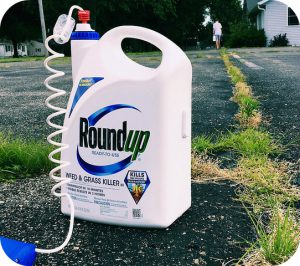 In June, the German pharmaceutical giant Bayer paid $63 billion to acquire Monsanto, one of the biggest names in agricultural technology. The idea behind the deal was to merge Bayer’s pesticide business with Monsanto’s dominance in genetically modified crops to create the world’s largest seed and agrochemical company. Along with these valuable assets, however, Bayer also acquired a lot of legal baggage. Over the years, Monsanto has faced thousands of lawsuits from consumer and environmental advocates who claim that the company’s weed killer Roundup causes major health problems.
In June, the German pharmaceutical giant Bayer paid $63 billion to acquire Monsanto, one of the biggest names in agricultural technology. The idea behind the deal was to merge Bayer’s pesticide business with Monsanto’s dominance in genetically modified crops to create the world’s largest seed and agrochemical company. Along with these valuable assets, however, Bayer also acquired a lot of legal baggage. Over the years, Monsanto has faced thousands of lawsuits from consumer and environmental advocates who claim that the company’s weed killer Roundup causes major health problems.
In fact, a jury in California recently awarded $289 million to a former groundskeeper who claims he contracted terminal cancer from using the weed killer. News of the decision sent Bayer’s stock price plunging by 10 percent as investors began to worry about the company’s many other Roundup-related lawsuits. They have also started to question why the deal with Monsanto went through in the first place. “Any stakeholder is going to be asking right now, ‘why would they buy Monsanto with this stuff hanging over its head?’” said Anthony Johndrow, a corporate reputation adviser. “I think that’s a question they have to answer, and they have to answer it sooner than they planned to.”
Before it got hit with that massive legal settlement, Bayer intended to eliminate the Monsanto brand name as a way to win back trust with consumers. CEO Werner Baumann also said the company would “aim to deepen our dialogue with society” and “listen to our critics.” But those plans might be in jeopardy now that Bayer must deal with both the financial and reputational fallout from its Monsanto purchase. While the company claims that Roundup does not cause cancer, it currently faces as many as 5,000 lawsuits saying that it does. However Bayer chooses to deal with this situation, experts say the company must demonstrate to the public that it cares deeply about consumer safety. “What they do will determine whether this will have a really, really bad effect, or just a moderately bad effect,” said Johndrow.
Questions:
- Do you think it was a good idea for Bayer to purchase Monsanto? Why or why not?
- What could Bayer do to regain trust with consumers after its purchase of Monsanto?
Source: Rachel Siegel, “Bayer Stock Plunges After Jury Awards Man $289 Million in Roundup Cancer Trial,” The Washington Post, August 13, 2018. Photo by David Mulder.
